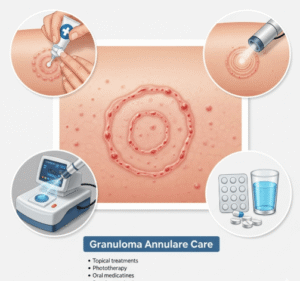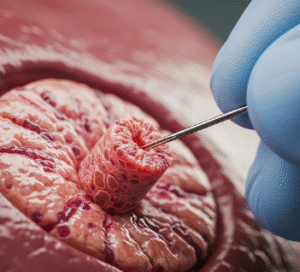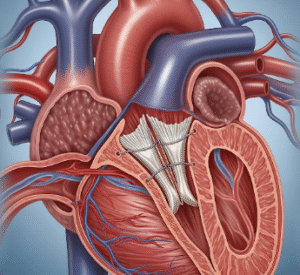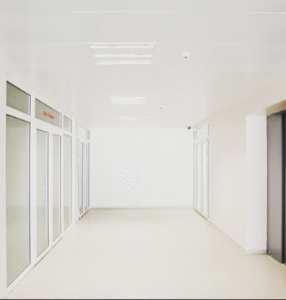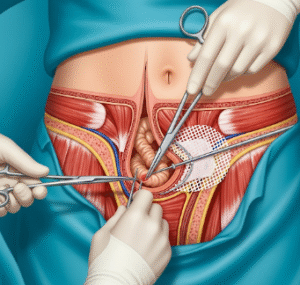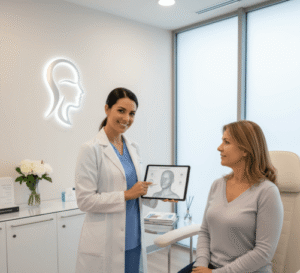Overview
Auditory Neuropathy (AN), also known as Auditory Neuropathy Spectrum Disorder (ANSD), is a rare type of hearing disorder in which sound enters the inner ear normally, but the transmission of signals from the inner ear (cochlea) to the brain is impaired. It can affect both children and adults. South Korea offers advanced diagnostic audiology, cochlear implants, and auditory rehabilitation services that help manage this complex condition.
What is Auditory Neuropathy?
Auditory Neuropathy is a hearing disorder where the cochlea receives sound properly, but the auditory nerve fails to transmit signals accurately to the brain. This results in distorted or unclear sound perception, especially in noisy environments. It is considered part of a spectrum because it can range from mild hearing issues to profound hearing loss.
Symptoms
- Difficulty understanding speech, especially in noisy environments
- Fluctuating hearing ability
- Sounds may seem out of sync or distorted
- Delayed speech development in children
- Inconsistent responses to sounds
- Normal otoacoustic emissions (OAEs) with abnormal auditory brainstem response (ABR) on hearing tests
Causes
- Genetic mutations: Such as OTOF, PJVK, or DIAPH3 genes
- Neonatal complications: Premature birth, jaundice, hypoxia
- Auditory nerve damage: Due to infections like meningitis or autoimmune conditions
- Neurological disorders: Including Charcot-Marie-Tooth disease or Friedreich’s ataxia
- Ototoxic drugs: Such as aminoglycoside antibiotics
- Unknown causes: In many idiopathic cases
Risk Factors
- Family history of hearing disorders
- Birth complications requiring NICU admission
- Use of ventilators or oxygen therapy in neonates
- Low birth weight or premature birth
- Exposure to ototoxic medications
Complications
- Delayed speech and language development in children
- Academic difficulties
- Social and emotional challenges due to impaired communication
- Misdiagnosis as sensorineural hearing loss or cognitive delay
- Poor speech discrimination despite hearing aids
Prevention
- Regular hearing screening for high-risk infants
- Genetic counseling for families with history of auditory neuropathy
- Avoiding unnecessary use of ototoxic medications
- Proper management of neonatal jaundice and infections
- Timely vaccination against diseases like meningitis
Treatment Options in Korea
South Korea has world-class audiology and ENT (Ear, Nose & Throat) facilities that specialize in diagnosing and treating auditory neuropathy. Leading hospitals include Severance Hospital, Samsung Medical Center, and National Center for Hearing in Seoul.
1. Diagnosis
- Otoacoustic Emissions (OAE): Often normal in auditory neuropathy
- Auditory Brainstem Response (ABR): Typically abnormal or absent
- MRI and CT scans: To assess auditory nerve integrity
- Speech discrimination testing: To evaluate real-world hearing ability
- Genetic testing: Especially in children
2. Medical and Supportive Treatment
- Hearing Aids: May help in some patients, though often less effective due to signal distortion
- Cochlear Implants: Highly effective for many patients, particularly children, by bypassing damaged auditory nerve connections
- Auditory-verbal therapy: To develop listening and spoken language skills
- Speech therapy: For children with speech delays
- FM systems: Assistive listening devices for better performance in classrooms or noisy places
3. Rehabilitation and Education
- Special education services for children with communication delays
- Use of visual communication (sign language) if auditory options fail
- Ongoing support from audiologists, speech therapists, and counselors
4. Follow-up and Monitoring
- Regular auditory testing to monitor progress
- Reprogramming of cochlear implants or hearing aids as needed
- Developmental assessments for children


